Eggs: a seemingly ubiquitous baking ingredient, but the sworn enemy of vegans and the allergic. It lurks in almost everything – muffins, cakes, cookies, brownies and pretty much every other pastry imaginable.
Trying to recreate your favorite recipes sans eggs can seem daunting, but with the help of science and some clever substitutions, you’ll be baking up a storm in no time.
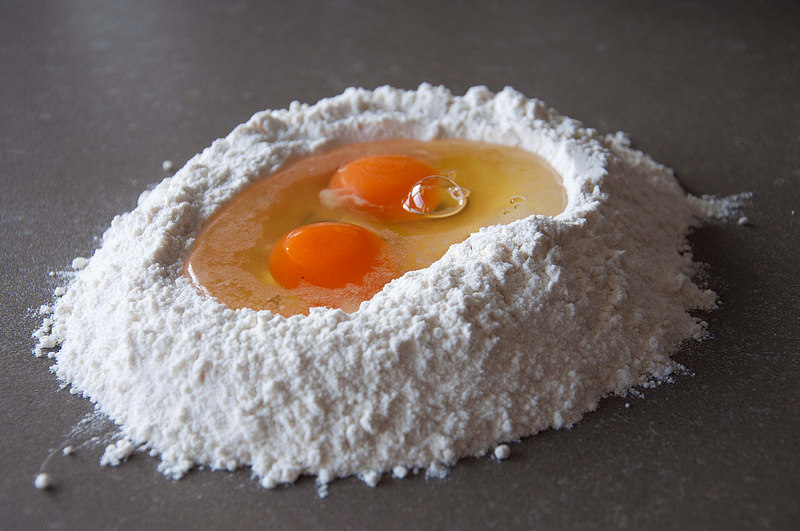
Photo courtesy of Thomas Strosse on Flickr
The key to successful egg-free baking is knowing the purpose of the eggs in your recipe. The unique protein structure of egg molecules is used to give baked goods many of their characteristic qualities.
In most recipes, eggs are used as a leavening agent. When the white of the egg is beaten, air is incorporated into the egg molecule. This creates the light and fluffy texture of cakes and muffins. Eggs can also be used as a binding agent, allowing for various ingredients to be combined without falling apart during the baking process. Eggs are also good thickening agents as they coagulate at various temperatures.
Luckily, substitutions that do these things also exist. Here are six egg-swap ideas and when to use them.
1. The Flax “Egg”
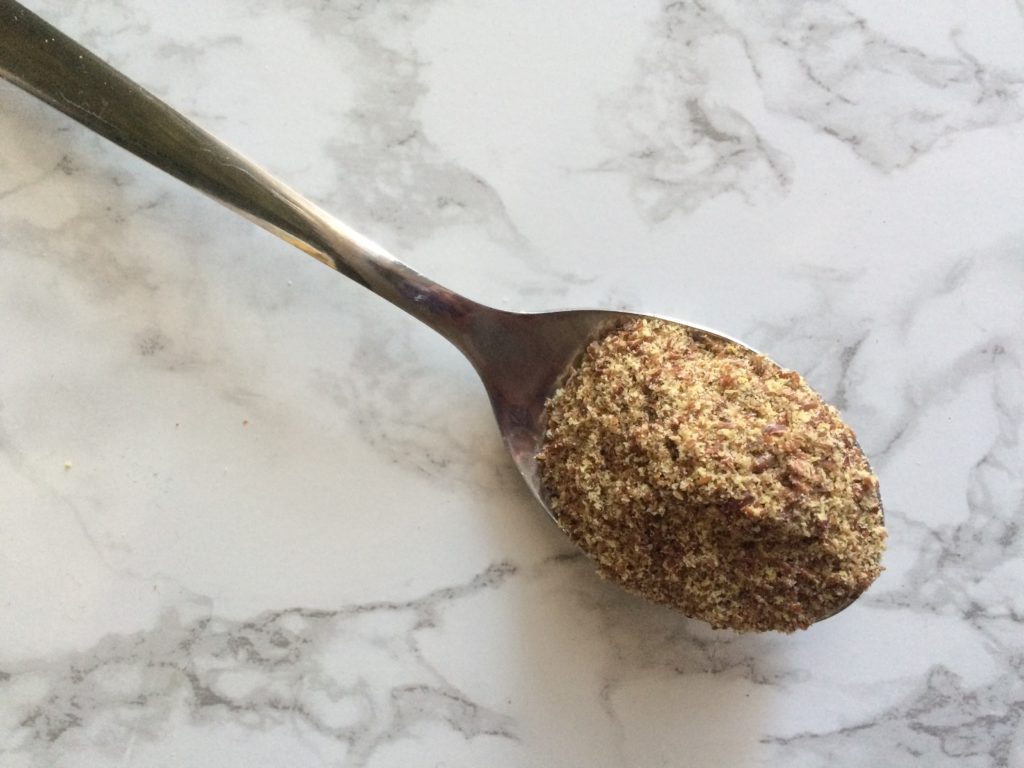
Photo by Hannah Latour
The flax egg is a great thickening agent and can be used in almost any recipe. For every egg you’re replacing, combine 3 tablespoons of lukewarm water with 1 tablespoon of flaxseed meal. Let the mixture sit for about 10 minutes, and add it when your recipe calls for the addition of egg.
Something to note about this method of egg replacement is that the flax can add a slightly grainy or nutty texture and taste. While this complements a lot of recipes (hello, oatmeal chocolate chip cookies!), it might not be what you want in those vanilla cupcakes.
2. The Chia Seed “Egg”
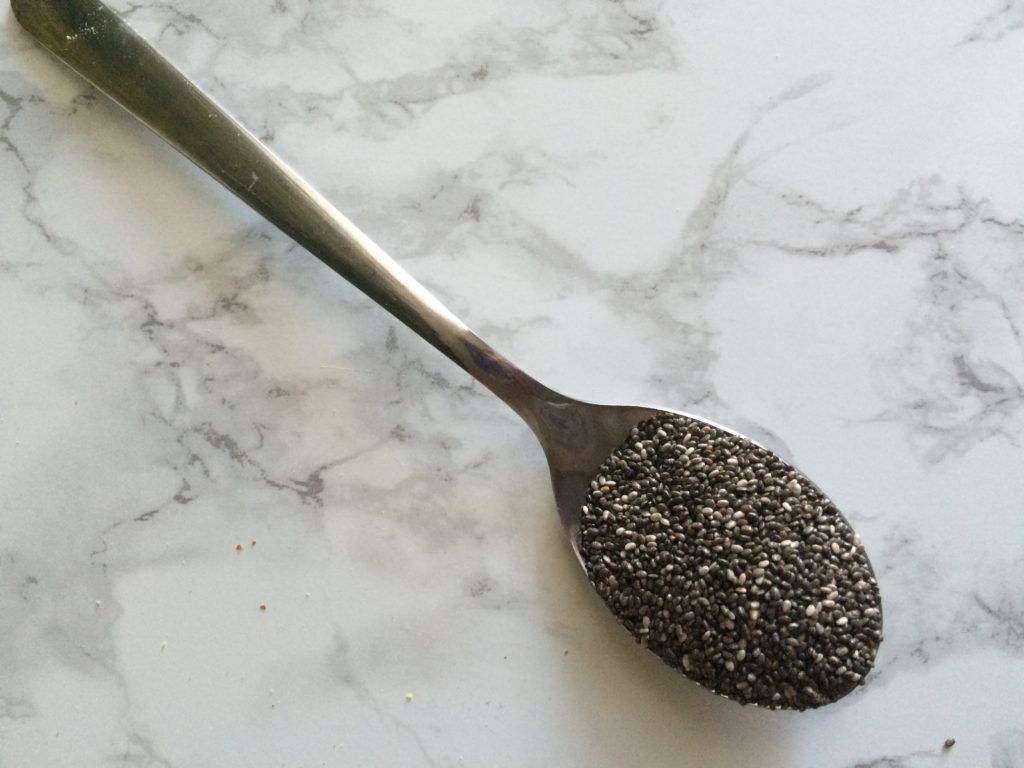
Photo by Hannah Latour
When chia seeds are combined with liquid, the seeds expand and form a gel which can be a great binding or thickening agent. For every egg being substituted, combine 1 tablespoon of chia seeds with 3 tablespoons of water.
Similar to the flax egg, the texture and taste of chia seeds shine in more “rustic” and “health-minded” recipes.
3. The Baking Soda Volcano “Egg”
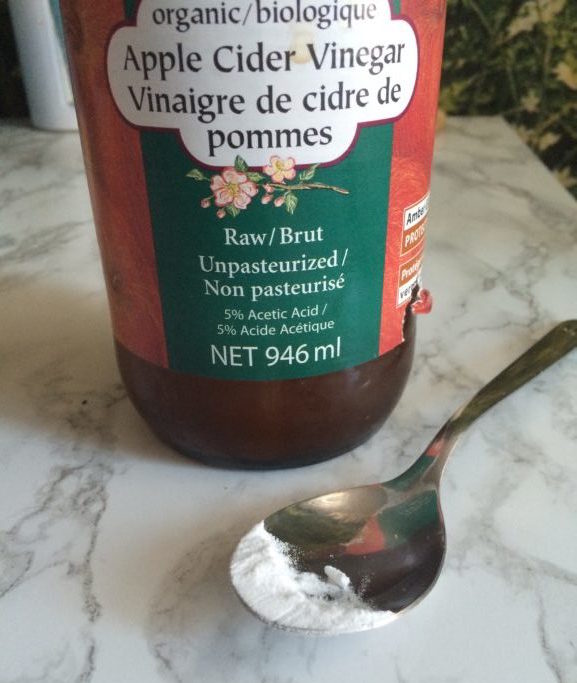
Photo by Hannah Latour
Combining 1 teaspoon of baking soda with 1 tablespoon of vinegar is a great way to mimic the leavening properties of eggs. An added bonus – there’s no noticeable change in taste or texture. This is a great one to use when baking a cake.
4. The Banana “Egg”
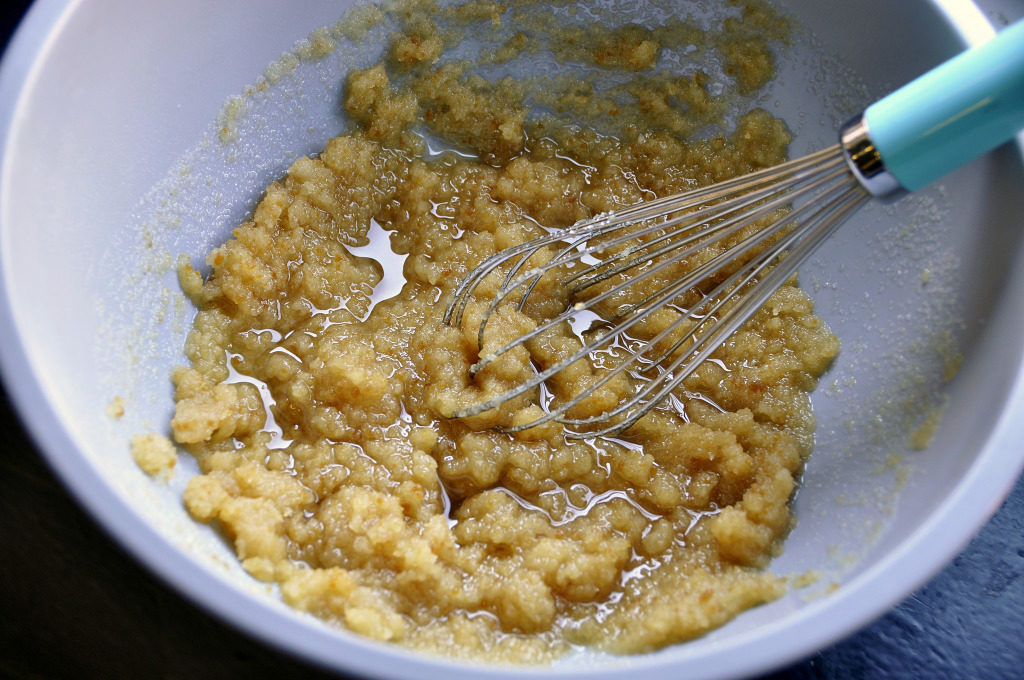
Photo by Emma Delaney
Banana is a great way to thicken batters and bind ingredients, as well as adding a serving of fruit to your recipe. To substitute one egg, all you have to do is mash one ripe banana. The taste of banana can be pretty distinct, so make sure to use it in a recipe where this flavor will shine.
5. The Applesauce “Egg”
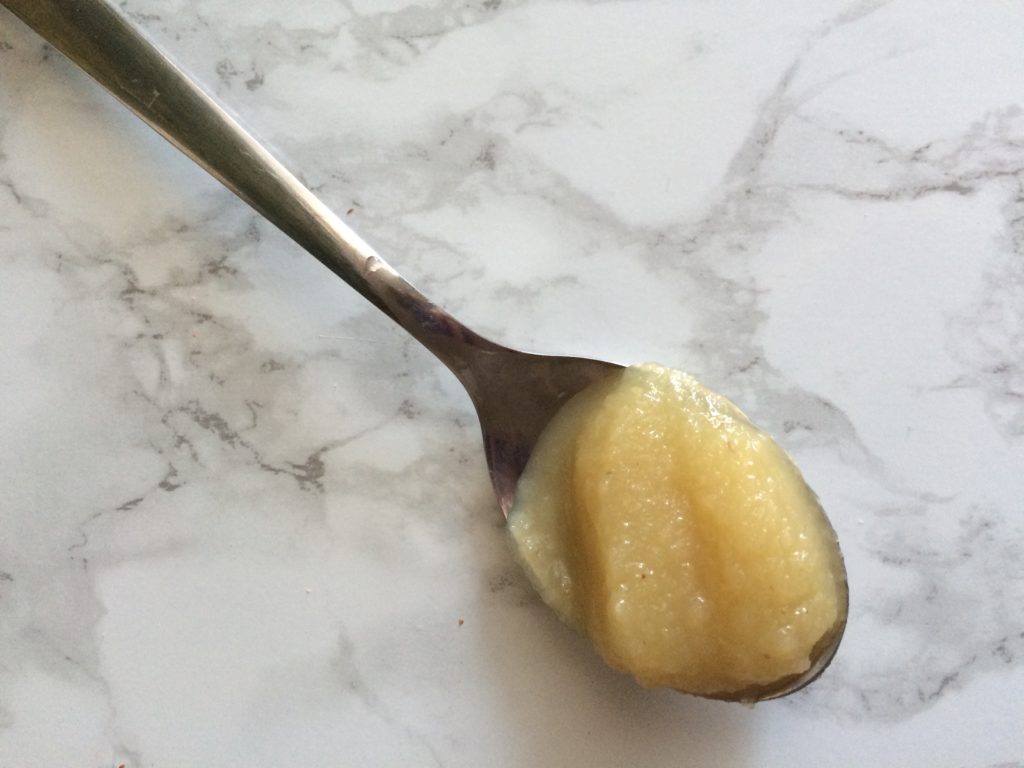
Photo by Hannah Latour
This one works similarly to the banana egg, but the flavor is more mild and versatile. To substitute one egg, use 1 tablespoon of applesauce.
6. The Egg-Replacer “Egg”
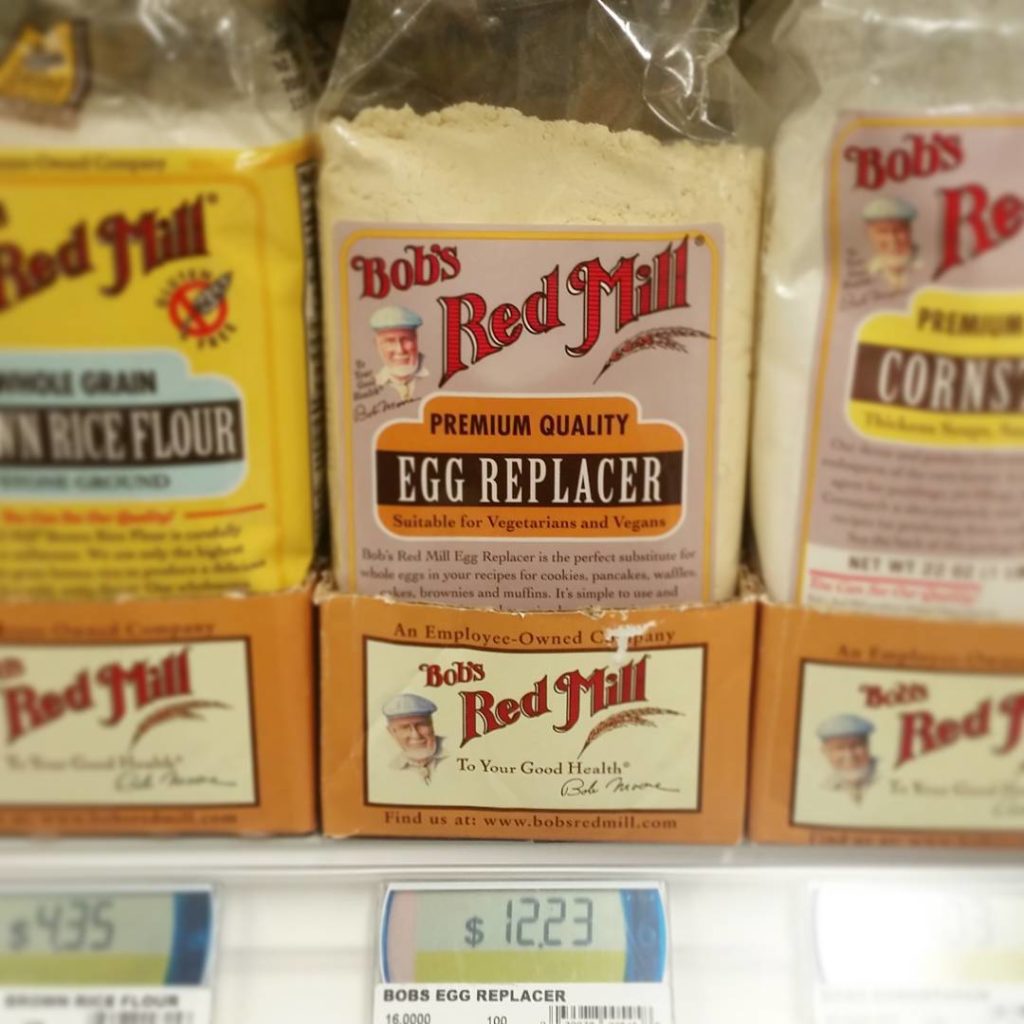
Photo courtesy of @freshnutz on Instagram
Commercially available egg replacements can be purchased at some grocery stores and most specialty food stores. They’re often good leavening agents and can be “hidden” in recipes as they don’t have a distinct texture or taste. They are usually sold as powders to which liquid is added before use.
#SpoonTip: They’re often made from a variety of ingredients, so be careful if you’re allergic to soy, dairy or anything else that might be lurking within. There is nothing worse than adding one allergen while trying to avoid another.
Caveats
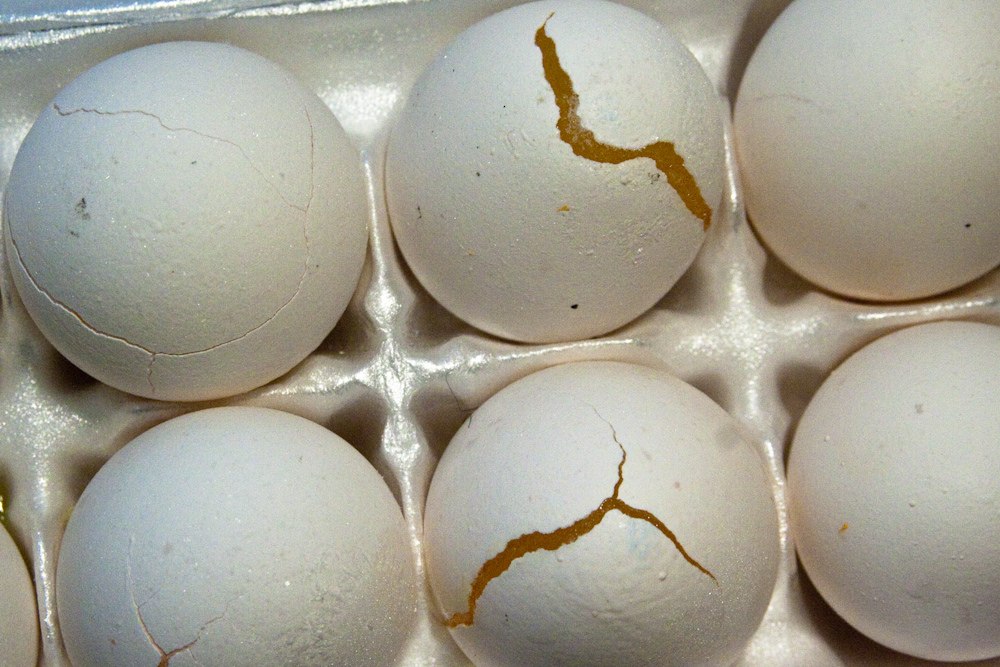
Photo courtesy of Steven Depolo on Flickr
Eggs can be successfully substituted in most recipes and yield delicious results, but as with everything, there are some limitations.
Generally, if a recipe calls for more than 3 eggs, the leavening and thickening powers of the above substitutes might not cut it. There comes a point when you really just need those protein-rich egg molecules. Never attempt a souffle, meringue or any recipe that is greater than 90% total egg composition.
Apart from those incidences, replacing eggs is a great option for those with dietary restrictions or people who just want to mix up their baking routine. Regardless of which one you are, the killer egg-free muffins and cakes that result are sure to please everyone.


